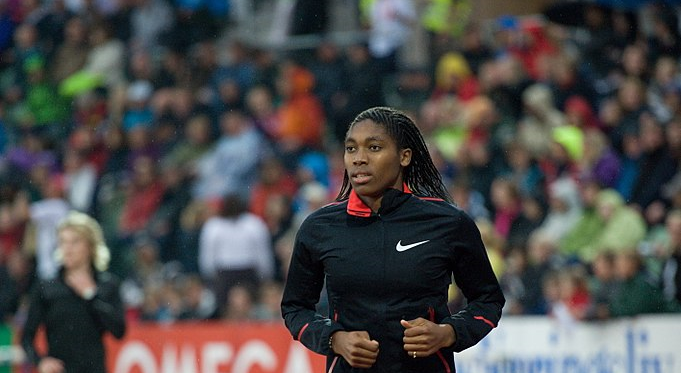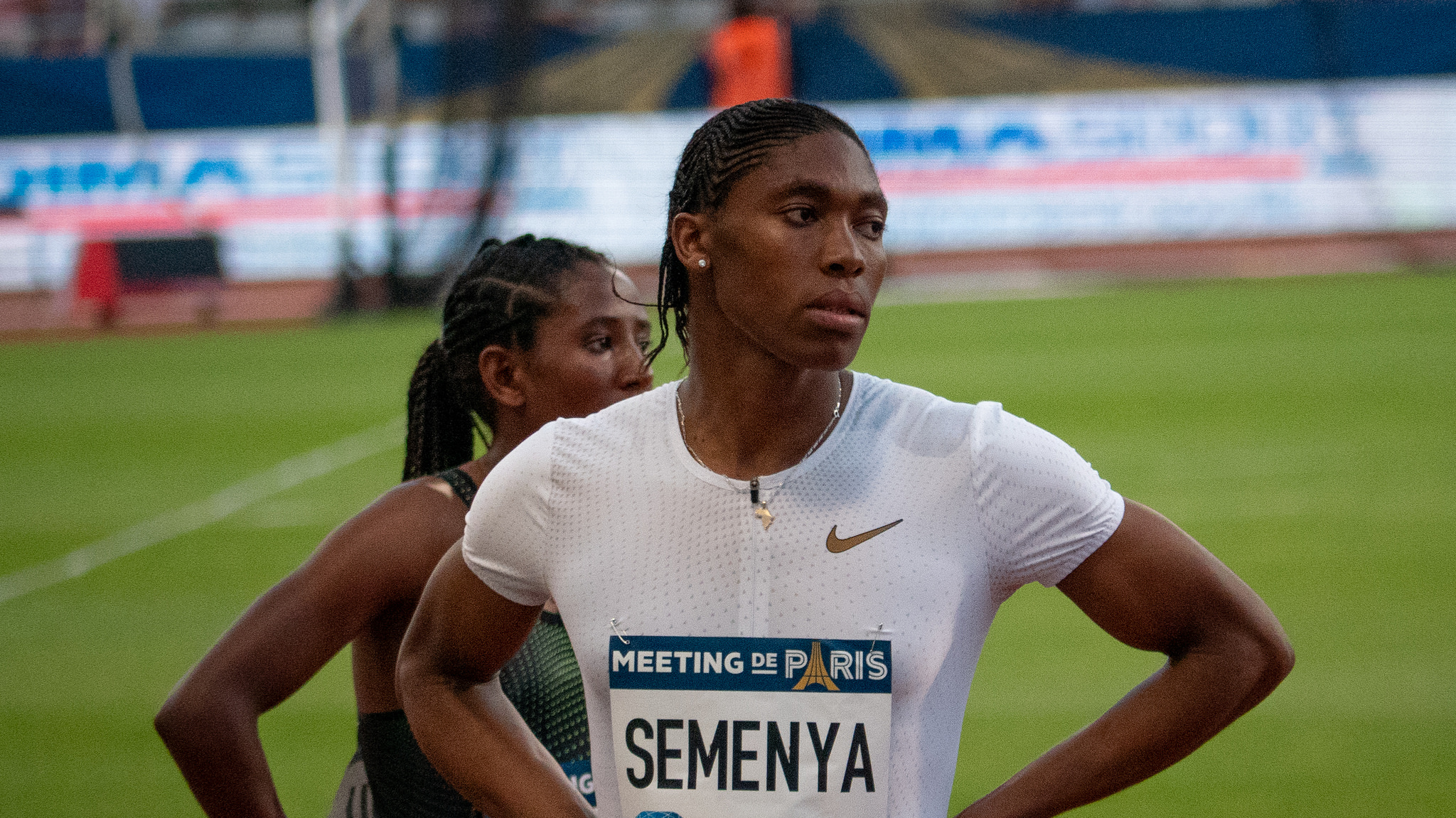Caster Semenya, an Olympic 800m champion, is appealing against a regulation that restricts the testosterone levels in female runners in a case that could have profound implications for the future of women in sport.
The South African national, 28, is contesting an International Association of Athletics Federation (IAAF) rule that female athletes with naturally high testosterone levels will have to compete against men unless they take medication to reduce it.
The rule was set to be brought in on 1 November 2018, however the legal challenge brought by Semenya and Athletics South Africa (ASA) delayed the introduction until 26 March 2019.
I just want to run naturally, the way I was born.
Caster Semenya
As an 18-year-old, Semenya was asked to take a gender test and has repeatedly had her gender questioned. No gender results have been officially made public.
“I just want to run naturally, the way I was born,” she said in a statement in June.

Semenya competing at the 2012 Olympics in London. Image credit: WikiCommons
Lord Sebastian Coe, the IAAF president, said that the regulation was brought in to “protect the sanctity of fair and open competition”.
Unable to agree, the case was referred to the Court Of Arbitration For Sport (CAS). It is being heard this week, with a verdict expected by 29 March.
Semenya won the 800m title at the Olympic Games in 2012 and 2016. She also won gold at the World Championships in 2017.
What Is The Court Of Arbitration For Sport And How Does It Work?
As the decision that could effect Semenya’s ability to compete in the women’s athletics field has been made by an official sporting body, both sides have agreed to refer it to CAS.
CAS is an independent institution that is called on to resolve legal disputes in the field of sport through arbitration and mediation.
Based in Lausanne, Switzerland, it registers more than 400 cases each year. Its jurisdiction is recognised by all Olympic sports federations and many non-Olympic federations too.
Those who may seek to settle disputes through CAS could include athletes, clubs, sports federations, organisers of sporting events, commercial sponsors or TV companies.
Disputes could be of a disciplinary nature, contesting a decision made by a sports organisation, such as a doping case, or commercial, such as a dispute over a sponsorship contract.
For a dispute to be settled by CAS, both parties must agree to it in writing. They may choose to represent themselves, or nominate an individual, who does not necessarily have to be a lawyer.
So Far, So Controversial
It is only day two of the hearing, but Semenya’s lawyers and ASA have already accused the IAAF of breaching the confidentiality regulations of the court by releasing a list of the five expert witnesses that will testify on their behalf.
Semenya believes the IAAF press release is a clear breach of the confidentiality provisions that was orchestrated in an effort to influence public opinion…
Lawyers acting on behalf of Caster Semenya
In a statement, the athlete’s lawyers said: “Semenya believes the IAAF press release is a clear breach of the confidentiality provisions that was orchestrated in an effort to influence public opinion in circumstances where the IAAF knew that Semenya would not be prepared to respond because she was complying with her confidentiality obligations.”

Image credit: Semenya warming up in 2011/Wikimedia
“As a matter of fairness, Semenya raised this issue with the Cas and has been granted permission to publicly release information responding to the IAAF press release‚ including disclosing the experts who are testifying in support of Semenya’s case.”
Athletics’ governing body responded by saying it was within its rights to make the witness list public, which also applied to Semenya’s team.
Last week, the IAAF were forced to dismiss reports that lawyers would argue athletes with high testosterone levels, like Semenya, should be classified as male.
How Does The Human Rights Act Prevent Discrimination In The UK?
Article 14 of the Human Rights Act states that all the rights and freedoms afforded to individuals by the Act must be protected and applied without discrimination.
Discrimination arises when someone is treated less fairly than another person in a similar situation without reasonable justification. It can also occur if you are disadvantaged by being treated the same as another person despite having different circumstances (for example if someone is pregnant or disabled).
Under the Human Rights Act, it is illegal to discriminate against someone on grounds including gender, race, colour, language, religion, national or social origin, property, birth, and more.
The Equality Act 2010 also offers more general protection against discrimination.







